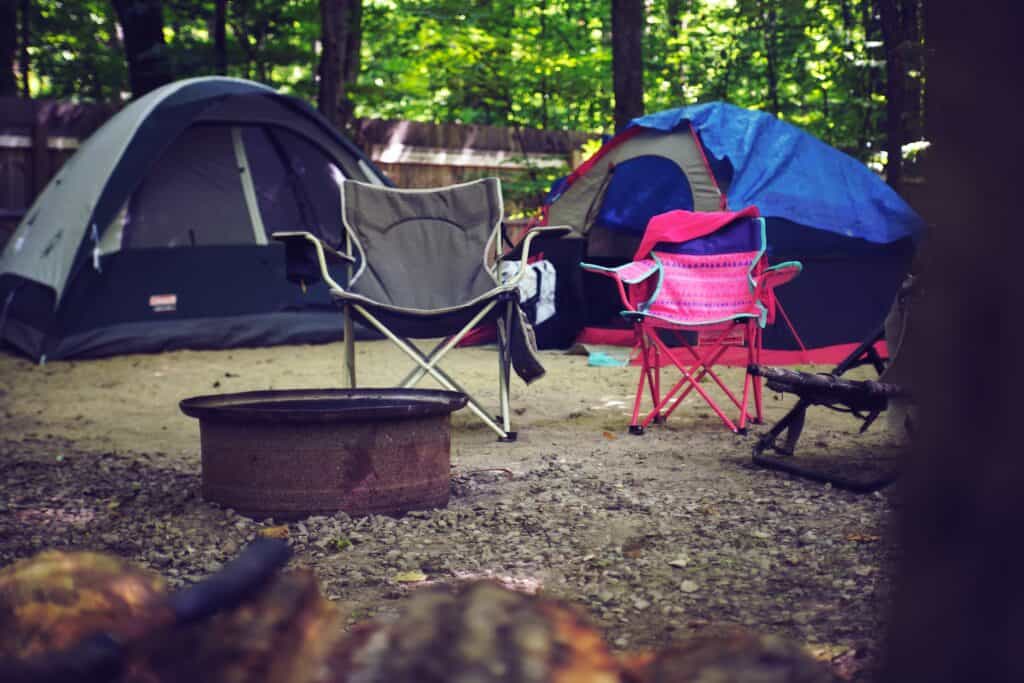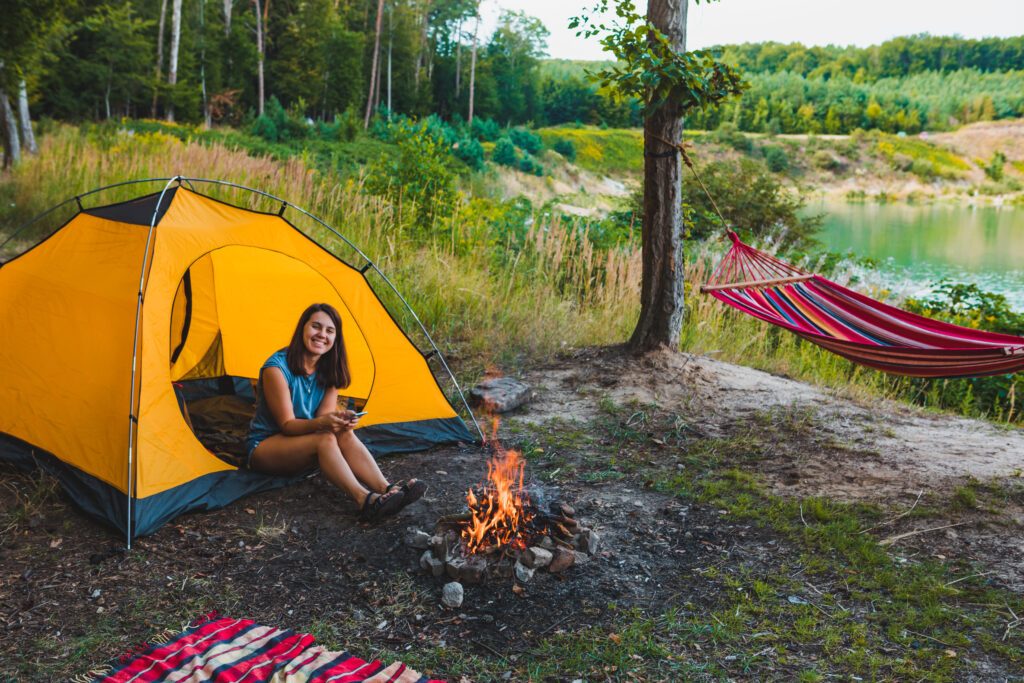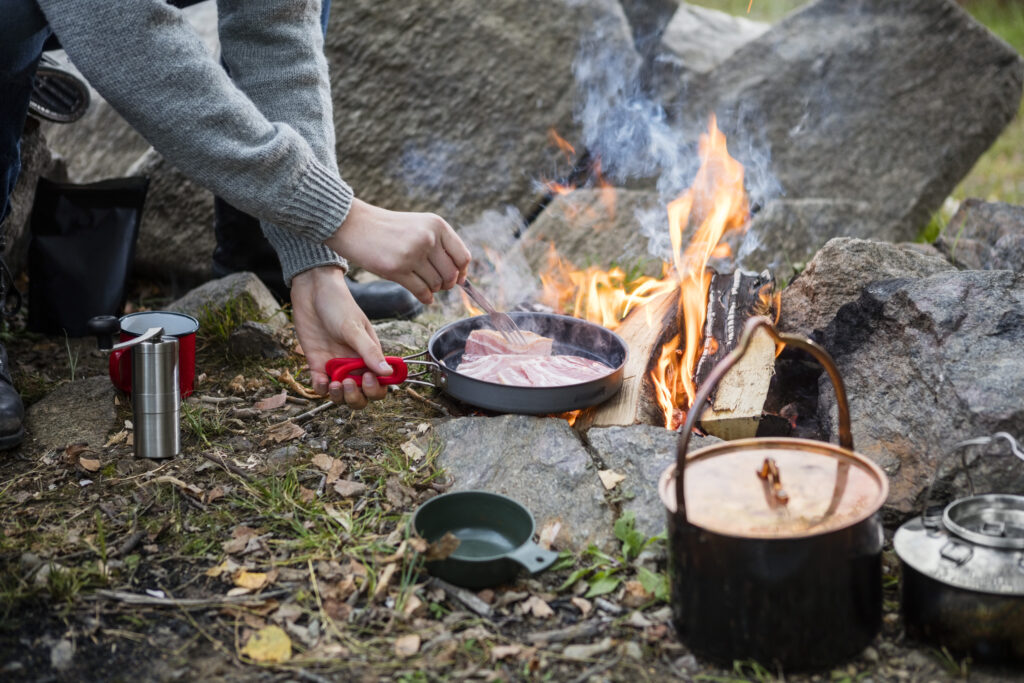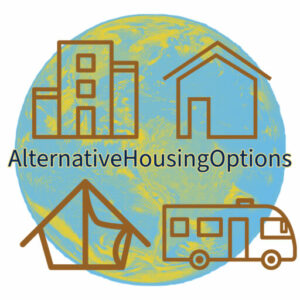What if you’re not into driving your home from place to place? What if you want to travel to a location and hike, bike, or kayak and spend more time in the woods, by lakes and streams, and in the great outdoors? Long-term camping outdoors has become a form of permanent alternative housing. You can be a permanent camper.
What is camping?
Camping means different things to people, with over 27 different types of camping. Camping is an outdoor activity where you stay outdoors overnight, away from your home, and usually the typical amenities of electricity, running water, and internet. You can camp outdoors in the open with a sleeping bag or blanket for sleeping. You could camp from a hammock in a tree. Camping can also involve upscaling to a pop-up camper, truck tent, RV, or motorhome.
You could choose to stay in a campground with all the standard facilities and amenities of home, or you could rough it out in the woods, countryside, or any rural location without any of the usual utilities of home. This article will discuss primitive camping as a long-term form of alternative housing.
What is primitive camping?
Primitive camping is what I tend to think of when talking about camping—driving to a lakeside area, parking next to a fire pit, and setting up your tent, sleeping bag, pillow, and starting a fire for cooking. It reminds me of weekends camping with friends who all forget to bring enough water but an abundance of snacks instead of real food, but I digress.
A primitive campsite is on public land managed by federal agencies, including the Bureau of Land Management (BLM), the Forest Service, the National Park Service, and the Fish and Wildlife Service. Many tribal, state and municipal agencies also allow camping on their public lands. These primitive sites usually have a firepit. They may have a porta-potty or chemical toilet nearby, but they often do not. There is also typically no running water.
If you choose to stay at a primitive campsite, you need to be prepared. Here are the advantages and disadvantages of camping at a primitive campsite.
What are the advantages of camping?

Temporary camping or recreational camping can help people unplug from devices and screens and spend time grounding themselves and recharging in nature. You’ll get plenty of fresh air, hopefully sunshine, and listen to the birds while you renew your soul.
Some advantages of permanent camping are:
- Saving money– your main costs will be your gear, food, water, fuel, bike, or kayak to reach your primitive campsite.
- Recharging in nature– our world is so plugged into an online world that it’s hard to break away at times. Case in point, I write for a living on a computer, connected to electricity and the internet. This is my daily occupation causing me to be connected like many people. In nature, you may have brought your phone, but there is typically no WiFi and no electricity. Your entertainment is a conversation with others or enjoying the night sky and surroundings.
- Camping can make you happier-by being in nature your mood will improve and your character will be renewed. Sunshine makes people happy.
- Sleeping can improve– if you have trouble sleeping, camping can turn that around. When it’s dark, you’ll go to sleep and wake up when the sun rises. There is no denying the power of sunlight as an alarm clock or instant heater. The inside of a tent can get mighty toasty with the sunshine.
- Learning to need minimal items– when you camp long-term, you do not have extra storage other than what you’ve packed initially. With your camp stove, coffee pot, bedroll, water filter, first aid kit, clothing, and camping gear, you learn to get by. You realize you don’t need a TV, electricity, or sewer system to survive, especially with a shovel and biodegradable toilet paper.
- Learning to take advantage of amenities when you can– showering and washing your hands can feel like a luxury when you camp long-term. You, of course, can set up your gear, so you have a portable shower and a large water bucket with a fixture to wash your hands after digging your latrine, but utilizing indoor plumbing when you can become a skill.
Some of the great skills you will learn when you camp like how-to:
- Select the best site for your camp.
- Safely start, maintain, and extinguish a fire for warmth and cooking.
- Know what natural materials make the best kindling.
- Safely use bladed tools, including an ax and knife.
- Make a tarp shelter.
- Identify poisonous plants and know how to treat the results of handling them.
- Prepare for inclement weather.
- Understand basic first aid and how to use the supplies in a medical kit.
- Set up and take down a tent quickly.
- Understand the basics of sanitation, the health issues of unsanitary conditions, and know how to set up a toilet/latrine station.
What are the disadvantages of camping?

- Enduring the weather- Getting soaked from long periods of rain when it’s not hot enough to dry means you’ll be wet for a while. Even when the rain stops, your tent and sleeping gear might not dry out for days.
- Sleeping on the ground can cause body aches- even with a bedroll or foam mat under your sleeping bag, can leave you with a stiff neck and sore back and shoulders.
- Sleeping in poor campsite conditions can be challenging to find a good primitive campsite, but you’ll learn to sleep anywhere by scouting an area.
- Cooking gourmet meals is a thing- camping doesn’t allow for any fancy meals. One-pot meals are your meals of choice, especially without refrigeration other than a cooler. Your space pretty regulates you for canned or dry goods that can be boiled.
- Moving campsites frequently can be tiring- many public areas have rules and regulations as to how long you can stay there. This can result in you needing to tear down your campsite and put it back up every 14 days, depending on the regulations.
- Relying on solar-powered batteries- If you have electronics with you, you’ll need a way to power them. You might be able to charge them when you fill up your car (if you brought a car) or when you bike to a rest stop.
- Bathing can become an issue- If you camp next to a lake or stream where you’re allowed to swim, you can take advantage of the accessible bathing facilities; if not, you might be going quite a while before taking a shower. This can cause issues with people when you do venture into a town as you might be very dirty and smell.
- Being in dangerous weather or animal situations- when primitive camping, you can experience inclement weather and animals possibly finding your campsite. Before becoming a long-term camper, understand how to protect yourself, your tent, gear, and food.
How much does it cost to buy camping equipment?

The cost of camping equipment can vary depending on how much you buy, the brands you choose, and the quality of your items so you don’t have to replace them often. momgoescamping.com breaks down all of the costs of camping for a family. The costs can range from a one-time investment of $231 to $2,762* plus *Add $86 (low end) or $1,077 (high end) per additional person. So if you are going with a family of four, you could be looking at a range of $575–$7070.
The basics you’ll need to bring with you when camping is a:
- tent,
- sleeping bag,
- sleeping pad,
- headlamp,
- compass,
- water filtration system or potable water if needed,
- a large water container with a spigot,
- a portable shower system,
- small camp stove,
- a hunting knife,
- multi-tool,
- fire-starter and waterproof matches,
- survival blankets,
- waterproof footwear,
- a first aid kit,
- a shovel,
- fishing pole and hooks,
- biodegradable toilet paper,
- extra clothes,
- toothbrush,
- toothpaste,
- floss,
- sunscreen,
- a pillow,
- and a book.
For food, you can fill your cooler or opt for dehydrated meals, to which you only add hot water and eat. Good To-Go and Trail Fork are two dehydrated brands.
Where can you camp for free or cheaply?
You can camp in many public areas for free. Boondockers Welcome lists areas where people will let you stay on their land for free or cheaply. Most public campgrounds would be $15-$40 a night if you wanted to camp in a campground. Otherwise, you can check out Campendium for a list of free places or The Dyrt.
When camping recreationally or long-term, you need to practice “Leave No Trace” camping. The seven principles are to plan ahead and prepare, travel and camp on durable surfaces, dispose of waste properly, leave what you find, minimize campfire impact, respect wildlife, and be considerate of others. You can camp on public lands not listed as restricted or banned for overnight stays with these principles.
Camping can be a great way to live cheaply in nature as an alternative housing option. If you follow all of the rules and regulations, you can easily camp as a lifestyle for 20-years or more. It does take quite a bit of planning to get the gear, how you’ll practice Leave No Trace living, and plan where you’re going to stay.
If the nomadic life is for you, but you want to put down a few more permanent roots, consider living in a Yurt or one of the other alternative housing ideas in our list of 25.


